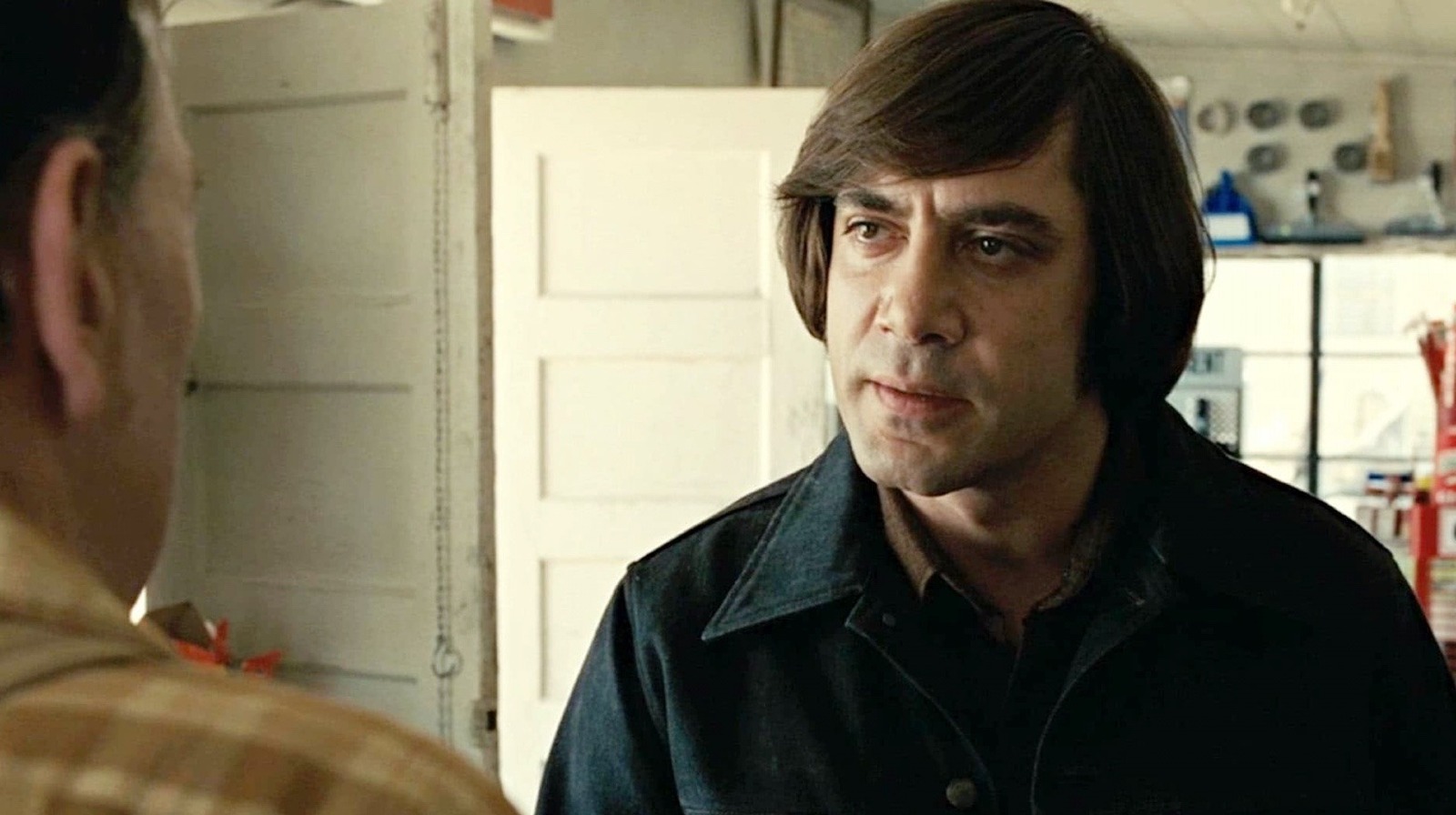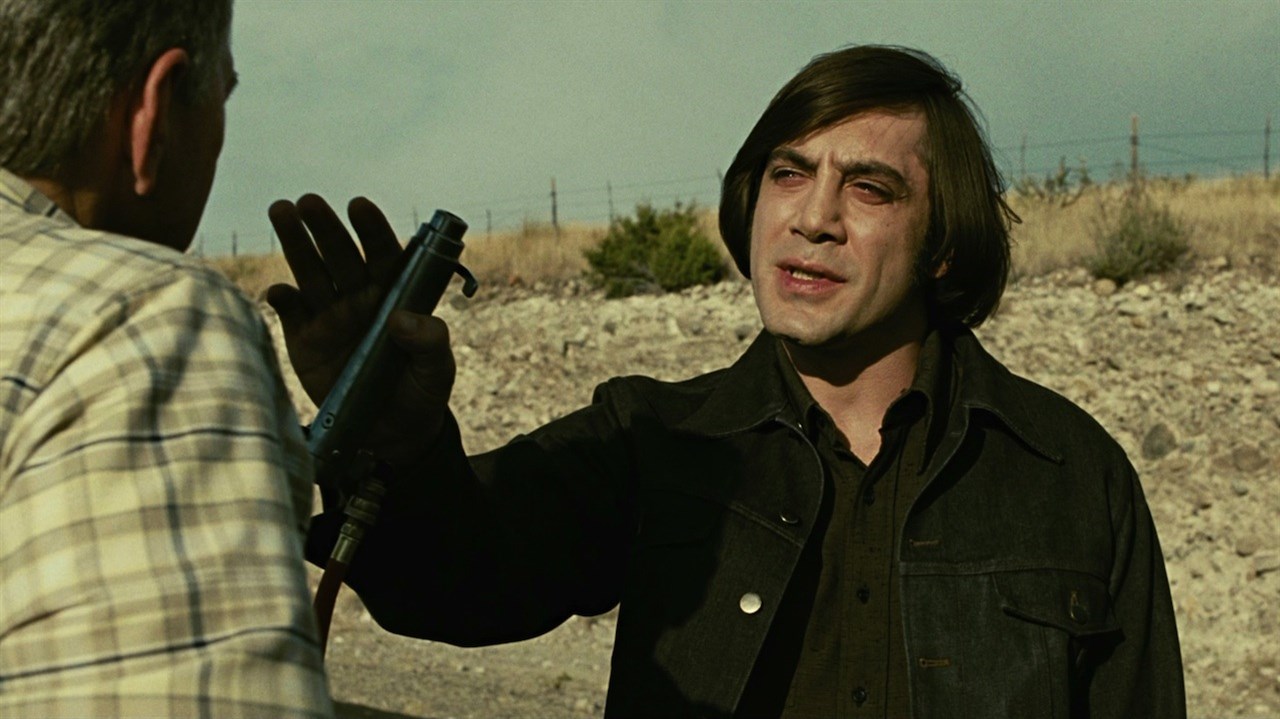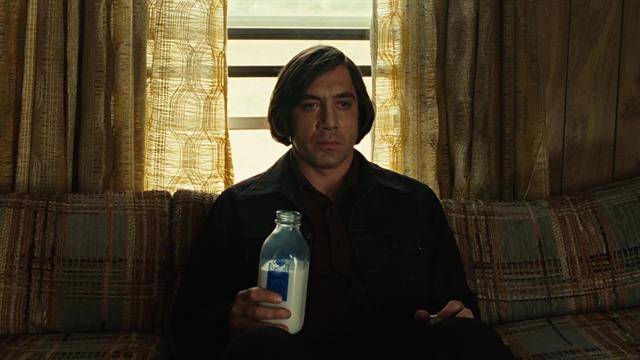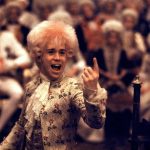No Country for Old Men
- quoctinh
- November 27, 2024

No Country for Old Men (2007): A Chilling Masterpiece of Fate and Morality
Introduction
Directed by Joel and Ethan Coen, No Country for Old Men is a gripping neo-Western crime thriller based on Cormac McCarthy’s 2005 novel of the same name. Released in 2007, the film is a haunting exploration of violence, fate, and the changing nature of the world. Featuring standout performances by Javier Bardem, Josh Brolin, and Tommy Lee Jones, the film captures the stark beauty of the Texas borderlands and the moral dilemmas faced by its characters. Its minimalist dialogue, brutal realism, and chilling suspense earned it widespread acclaim, including four Academy Awards, such as Best Picture and Best Supporting Actor for Bardem’s terrifying portrayal of Anton Chigurh.
Plot Summary
The story begins in 1980s West Texas, where Vietnam veteran Llewelyn Moss (Josh Brolin) stumbles upon the aftermath of a drug deal gone horribly wrong. Among the dead bodies and vehicles, he finds a case containing $2 million in cash. Realizing the danger but unable to resist the temptation, Moss takes the money and sets off a deadly chain of events.
Hot on Moss’s trail is Anton Chigurh (Javier Bardem), a psychopathic hitman with an unsettling moral code. Armed with a captive bolt pistol and a coin he uses to determine the fate of his victims, Chigurh is relentless and merciless. As Moss tries to evade capture, his ingenuity is tested against Chigurh’s cold efficiency.
Sheriff Ed Tom Bell (Tommy Lee Jones), a weary lawman nearing retirement, serves as the film’s moral center. As he investigates the escalating violence, Bell reflects on the growing brutality of the world and his own sense of helplessness in confronting it.
The story unfolds as a tense game of cat and mouse, with Moss, Chigurh, and Bell crossing paths in the desolate landscapes of Texas. The film builds to an unconventional and unsettling climax, leaving viewers with lingering questions about justice, fate, and human nature.
Themes
No Country for Old Men is rich with philosophical themes, including:
Fate and Chance: Chigurh’s coin toss symbolizes the randomness of life and death, challenging the notion of control. The film repeatedly questions whether our choices truly shape our destiny or if we’re at the mercy of forces beyond our understanding.
Morality and Justice: The characters grapple with their own moral compasses. Chigurh adheres to a twisted logic, while Bell struggles with his inability to impose order on a chaotic world. The film suggests that morality is increasingly irrelevant in a society dominated by violence and greed.
The Changing World: Bell’s reflections highlight a generational shift. The “old ways” of honor and justice no longer seem to apply in a world where violence is senseless and indiscriminate.
Isolation and Alienation: Moss, Chigurh, and Bell operate in isolation, each pursuing their goals with little connection to others. This loneliness mirrors the bleakness of the world they inhabit.
Cast and Performances
Javier Bardem as Anton Chigurh: Bardem delivers a chilling, Oscar-winning performance as one of cinema’s most memorable villains. Chigurh’s calm demeanor, cryptic philosophy, and unpredictable violence make him terrifyingly unforgettable.
Josh Brolin as Llewelyn Moss: Brolin portrays Moss with a quiet determination and resourcefulness. His character’s moral ambiguity—neither a hero nor entirely corrupt—grounds the story in realism.
Tommy Lee Jones as Sheriff Ed Tom Bell: Jones brings gravitas and poignancy to the role, capturing Bell’s weariness and quiet despair. His performance anchors the film’s meditative tone.
Kelly Macdonald as Carla Jean Moss: Macdonald shines as Moss’s loyal and vulnerable wife, delivering a poignant and heart-wrenching performance in her scenes with Chigurh.
Cinematography and Direction
The Coen brothers, known for their meticulous craftsmanship, create a world that is as beautiful as it is unforgiving. Cinematographer Roger Deakins captures the stark landscapes of West Texas with stunning precision, using wide shots to emphasize the characters’ isolation and the vastness of their environment.
The film’s deliberate pacing and sparse dialogue heighten its tension, while its realistic depiction of violence adds to the sense of dread. The Coens’ refusal to provide easy answers or traditional resolutions underscores the film’s existential themes.
Sound and Music
One of the most striking aspects of No Country for Old Men is its near-total lack of a musical score. This absence amplifies the film’s tension, allowing the sounds of the environment—footsteps, gunshots, the wind—to take center stage. The silence creates an unsettling atmosphere, making every moment feel more immediate and real.
Reception and Impact
No Country for Old Men received universal acclaim, with critics praising its performances, direction, and adherence to McCarthy’s novel. The film won four Academy Awards, including Best Picture, Best Director, Best Adapted Screenplay, and Best Supporting Actor for Bardem.
The film’s ending, which defies traditional narrative closure, sparked debate among audiences and critics. This ambiguity has contributed to its lasting impact, inviting viewers to revisit and interpret its themes.
Legacy
No Country for Old Men is often regarded as one of the Coen brothers’ finest works and a modern classic. Its influence can be seen in subsequent films that explore similar themes of morality and existentialism. Anton Chigurh has become an iconic figure in film history, representing the embodiment of fate and chaos.
Conclusion
No Country for Old Men is a masterclass in storytelling, blending suspense, philosophy, and unforgettable characters into a cinematic experience that lingers long after the credits roll. Its exploration of fate, morality, and the inevitability of change resonates on a profound level, making it a film that transcends its genre. For anyone seeking a thought-provoking and chillingly realistic depiction of human nature, No Country for Old Men is an essential watch.











